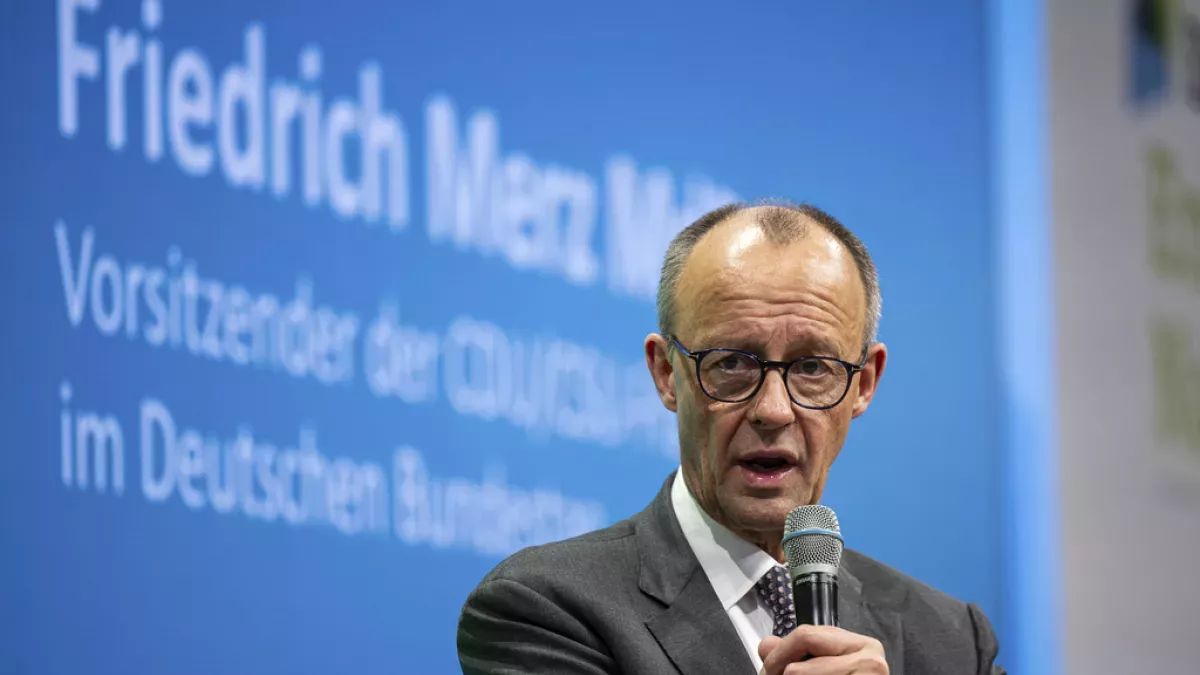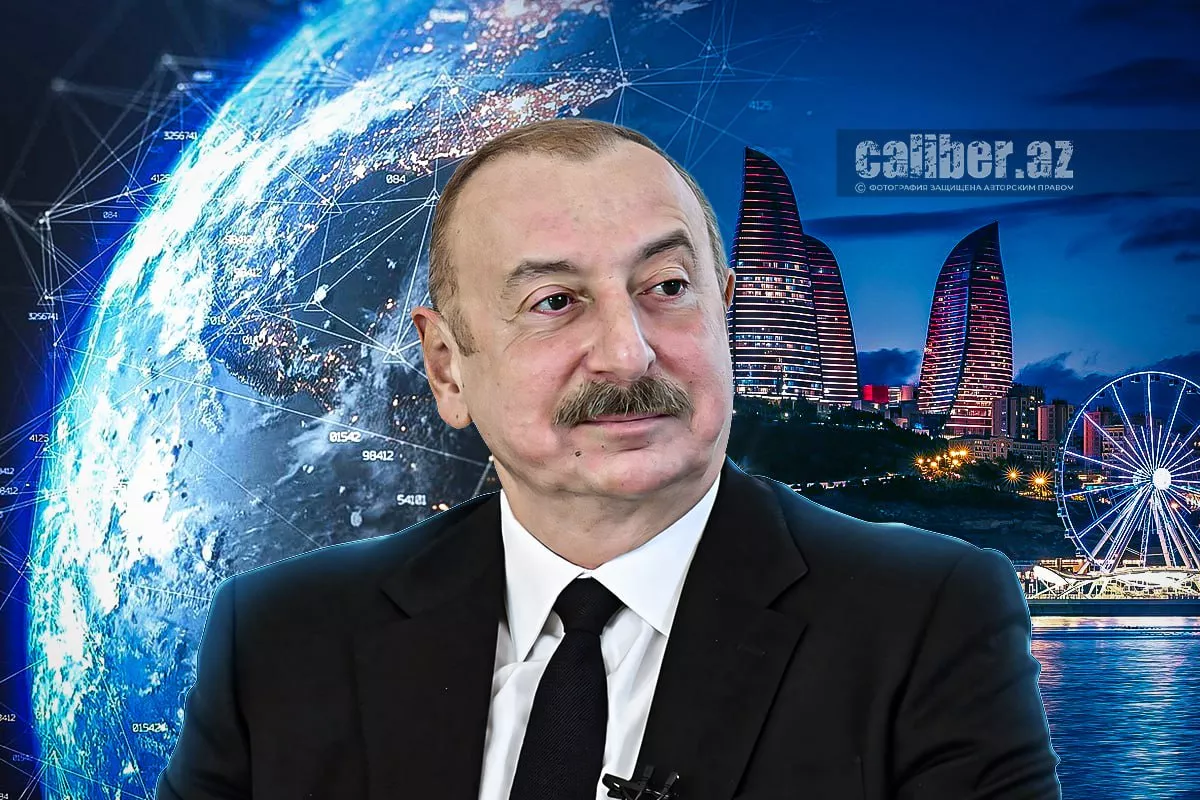Geopolitical fear factor How it shapes global trends
Global geopolitics... An immense concept. Vast. It can encompass a wide range of "isms," depending on who perceives the world around them in terms of relationships between states. Especially when yesterday's allies become enemies, and real adversaries suddenly not only align but also begin to shape new global trends.
And here, as strange as it may sound to some, emerges an aspect such as fear. Or rather, the philosophy of fear. And in a global context. When what is happening in the world unexpectedly (or perhaps not so unexpectedly?) starts to manifest directly through this very philosophy. Does it sound paradoxical? Utopian? What if we look at it from a real perspective?
Alright. Let's start by considering whether real political or philosophical thought exists today within the Western political space. Understanding this is crucial, first and foremost, for comprehending what drives certain politicians when making decisions. And here, we encounter a new historical fact. On the one hand, the concept of the "collective West" no longer functions in the way it once did. Consequently, its previous common slogans, such as "human rights protection," "market economy," "liberal values," and similar ones, can now be found on the sidelines of current historical realities.
But on the other hand, what has replaced these ideas? This is the million-dollar question. Because, if we delve into recent weeks (and even months) in terms of possibly groundbreaking political or philosophical ideas emerging in the global arena—not necessarily from the "collective West," but perhaps from any individual country—we might struggle to recall anything. It's possible that some might point to the famous Trump slogan, "America First," and his motto, "Peace through strength." But let's be objective: did these ideas bring anything new to the world, and don't both of these slogans, especially the second one, carry centuries of historical baggage?
What's more interesting is that many analysts are convinced that these slogans are being revived, along with a series of political and economic steps taken by some European leaders due to certain geopolitical concerns. In particular, phrases like "The best defense is a good offense" or "If you want peace, prepare for war" have been brought back into the conversation. These experts believe that Washington's concerns about China's rise and the potential strengthening of the China-Russia alliance are pushing the White House to pursue a foreign policy that is, to say the least, unconventional. And this is evident across various vectors.

In this context, experts also refer to new trends in the actions of European states, both in foreign and domestic policy. One such example is provided by the steps taken by the Polish government. According to Polish media, "in light of the shift in Washington's policy toward Ukraine and Russia during Donald Trump's presidency," Poland perceives a threat to its security. At the heart of this is the same geopolitical fear, which, among other factors, stems from the belief in certain Polish political circles that the country is living in "pre-war times," with the possibility of "war with Russia in the coming years" not being ruled out. As a result, Warsaw has become a leader among NATO countries "not only in defense spending as a percentage of GDP, but also in the proportion of military spending allocated to the purchase of armaments."
But this is just one side of Poland's "insurance medal." On the other side is the almost "eternal" fear in Warsaw of a possible re-unification of Russia and Germany. According to Polish journalists, the hypothetical first step of this tandem could be a "traditional" anti-Polish movement. Naturally, we will not delve into the details of this backdrop, but since the German vector has surfaced, let us touch upon the "insurance" nuances on the Berlin front as well.
For example, the leader of the CDU party and likely future German Chancellor, Friedrich Merz, has expressed support for raising the topic of Germany's involvement in the European nuclear defense shield: "Although Berlin will not be allowed to possess its own nuclear weapons, cooperation in nuclear armament with France and the United Kingdom is becoming a necessary issue to discuss." At the same time, Merz has initiated and successfully argued for a significant increase in Germany's defense spending, with the Bundestag approving multibillion-dollar investments in Germany's defense and infrastructure. He firmly justified both of these decisions by citing Russia's military actions.
Moreover, Merz, openly stating his "indifference of the United States to the fate of the European continent," has expressed doubts about NATO's reliability, particularly regarding the adherence of all alliance members, and especially the United States, to the organization's charter. The geopolitical fear we mentioned earlier is so prevalent here that Merz and his colleagues do not prioritize the expected rise in inflation in Germany, at least not in the immediate term.

Well, the reader might ask, could the trend of geopolitical fear be the driving force behind what happens in the world in the coming years? Or will it eventually undergo a "change of course"?
It seems to us that the issue here is not about the timing or the magnitude of fear, but rather its underlying presence. This is particularly evident in the Azerbaijani context. For example, back in 2014, the President of Azerbaijan, Ilham Aliyev, stated that the Armenian army was in a state of fear due to "our complete superiority and control of the situation on the line of contact." He revealed that "no external force can guarantee stability in this region or influence our will." "The enemy knows this," emphasized the head of state, "and that is why they are in fear." While Baku "remains committed to negotiations, our patience is running out, and the Azerbaijani army is ready at any moment to carry out the command of the Supreme Commander-in-Chief to restore territorial integrity."
On the significant date of November 8, 2022, President Ilham Aliyev of Azerbaijan, noting that "we always respect all international agreements. We are a fair people and a fair country. If we have made a commitment, we will fulfill it. We are fulfilling all the obligations we undertook in the 10 November 2020 Statement," emphasized, "but is Armenia doing the same? No! Immediately after the second Karabakh war, they were simply so afraid that they fulfilled those provisions without a single shot being fired, and the occupied territories of Aghdam, Kalbajar and Lachin districts were returned to us. If he hadn’t returned them, we would have smashed their heads again. But what next? Then they started biding the time again. I want to say again that this commitment has not yet been fully fulfilled. What are the Armenian armed forces doing in Karabakh? Our patience is not inexhaustible, and I want to warn them again that if this obligation is not fulfilled, Azerbaijan will take necessary steps."

Said and done.
In 2023, Ilham Aliyev stated: "Justice is on our side, international law is on our side, we are not afraid of anyone and we have shown it both on the battlefield and on the political plane. The sooner Armenia’s patrons understand this, the better it will be for Armenia and for the region."
Thus, as it appears, the theme of geopolitical fear, which can manifest not only in economic but also in military realms, is inherently justified, if not to say, has a historical background. The nuance here is that even in conditions where international law is widely violated, a state that, despite all obstacles, remains fundamentally just and continues to take steps in line with international law is bound, so to speak, for success. It is precisely this factor that removes the very geopolitical fear, contributing to its formation within the countries that act in violation of international law. And Azerbaijan's experience has proven this beyond doubt!








